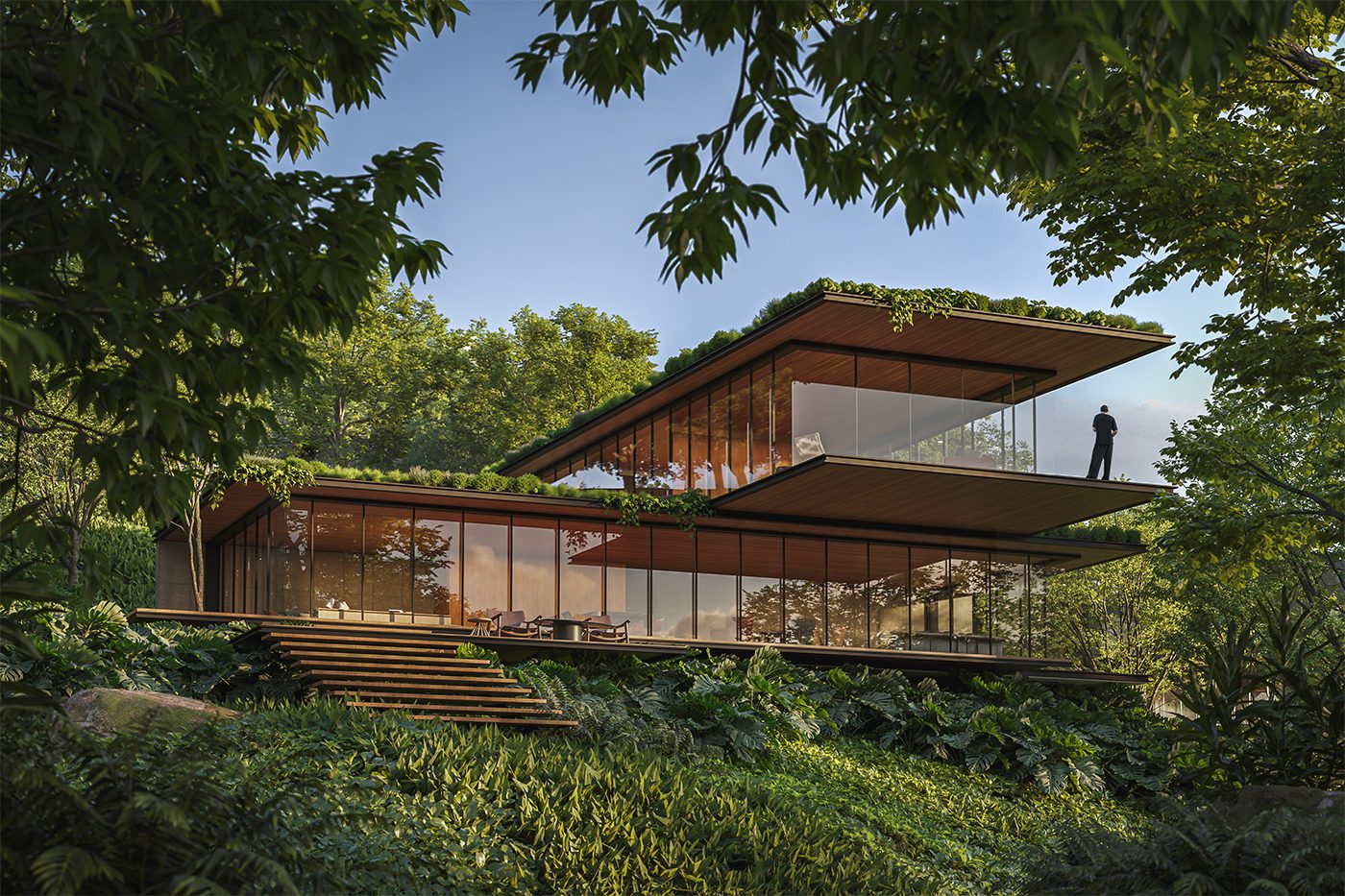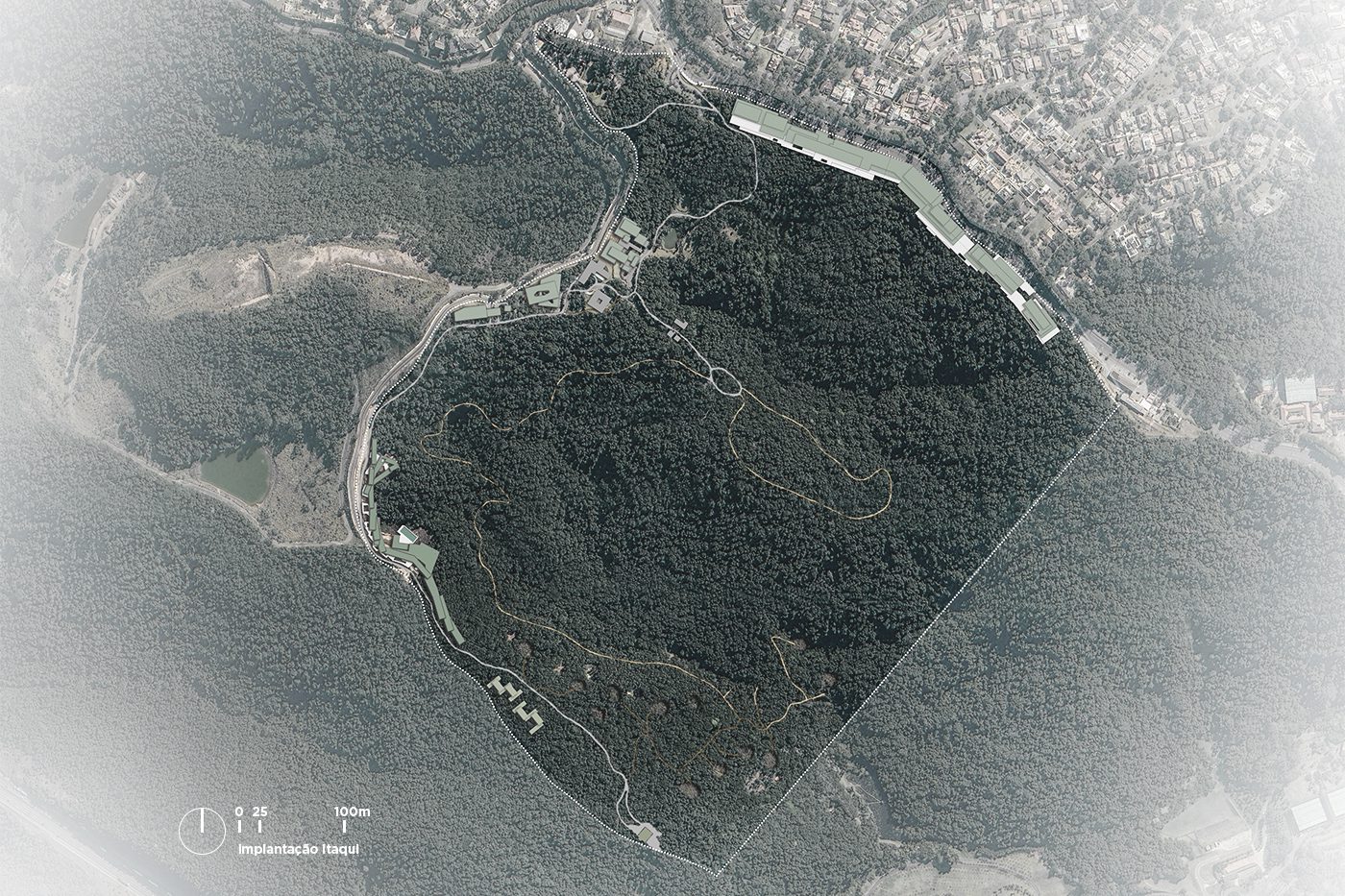Project implementation: Brazil
Project development: Brazil
The Itaqui Innovation District is a project that combines innovation, education, and entrepreneurship with environmental preservation. Unlike a traditional urban district, the project is anchored in the region's lush natural environment: rivers, forests, and wildlife are protagonists, more than just scenery. Approximately 90% of the total area will be preserved, creating a space where the natural landscape not only shapes the environment but also underpins the ethics of teaching, research, and business.
Located on the edge of the site, the architectural complex was designed to minimize impacts and allow for the regeneration of native forest. This strategy simultaneously ensures integration with the urban environment and functional access to neighboring cities, without compromising the preservation area. Circulation between the blocks occurs via external roads, reducing pressure on internal ecosystems.
The district's program is organized into three main areas: the Academic and Business Center, focused on academic training, research, and student housing; the Hospitality Center, with training, lodging, and community spaces; and the Leadership and Business Center, dedicated to entrepreneurship, technological innovation, and new business incubation. In addition to these centers, the project includes common support areas such as a library, laboratories, restaurants, and community spaces.
The buildings were designed with respect for the topography and adopting sustainable solutions. The volumes are laid out horizontally, taking advantage of existing clearings and avoiding complex vertical constructions. Terraces, overhangs, and open areas ensure thermal comfort, integration with the landscape, and spaces for socializing. The strategically distributed homes directly connect with the forest, creating an immersive experience for students, researchers, and entrepreneurs.
Mobility between blocks prioritizes sustainable and low-impact modes: bike paths, shaded walkways, electric scooters, and slope-adapted routes. This infrastructure ensures accessibility, safety, and efficiency in daily commuting.
More than just a physical space, Itaqui aims to be a model for the future. The masterplan reflects an ethical commitment to social inclusion and environmental responsibility, fostering an environment where innovation, education, and sustainability go hand in hand. The district was created as a hub capable of generating knowledge, leadership, and solutions to contemporary challenges, planting the seed of a world more integrated between nature, society, and technology.




